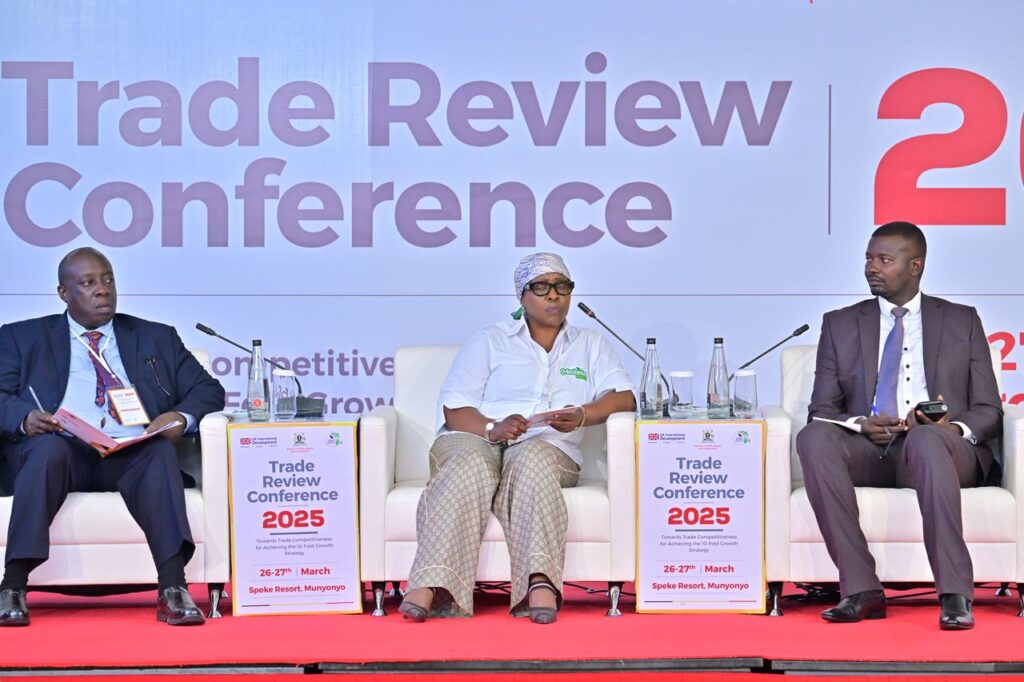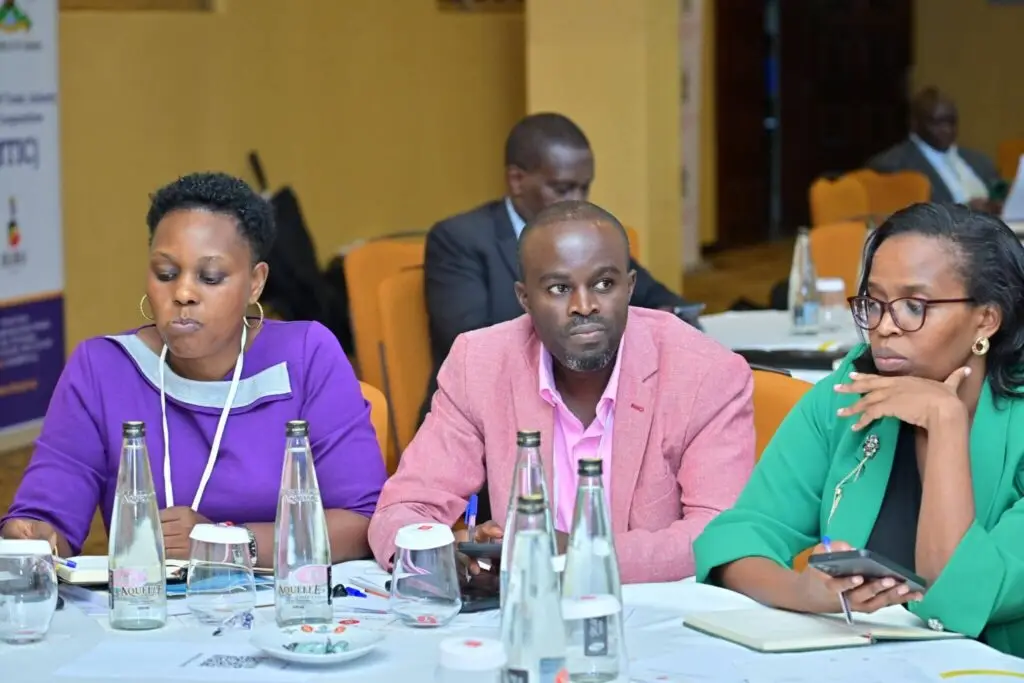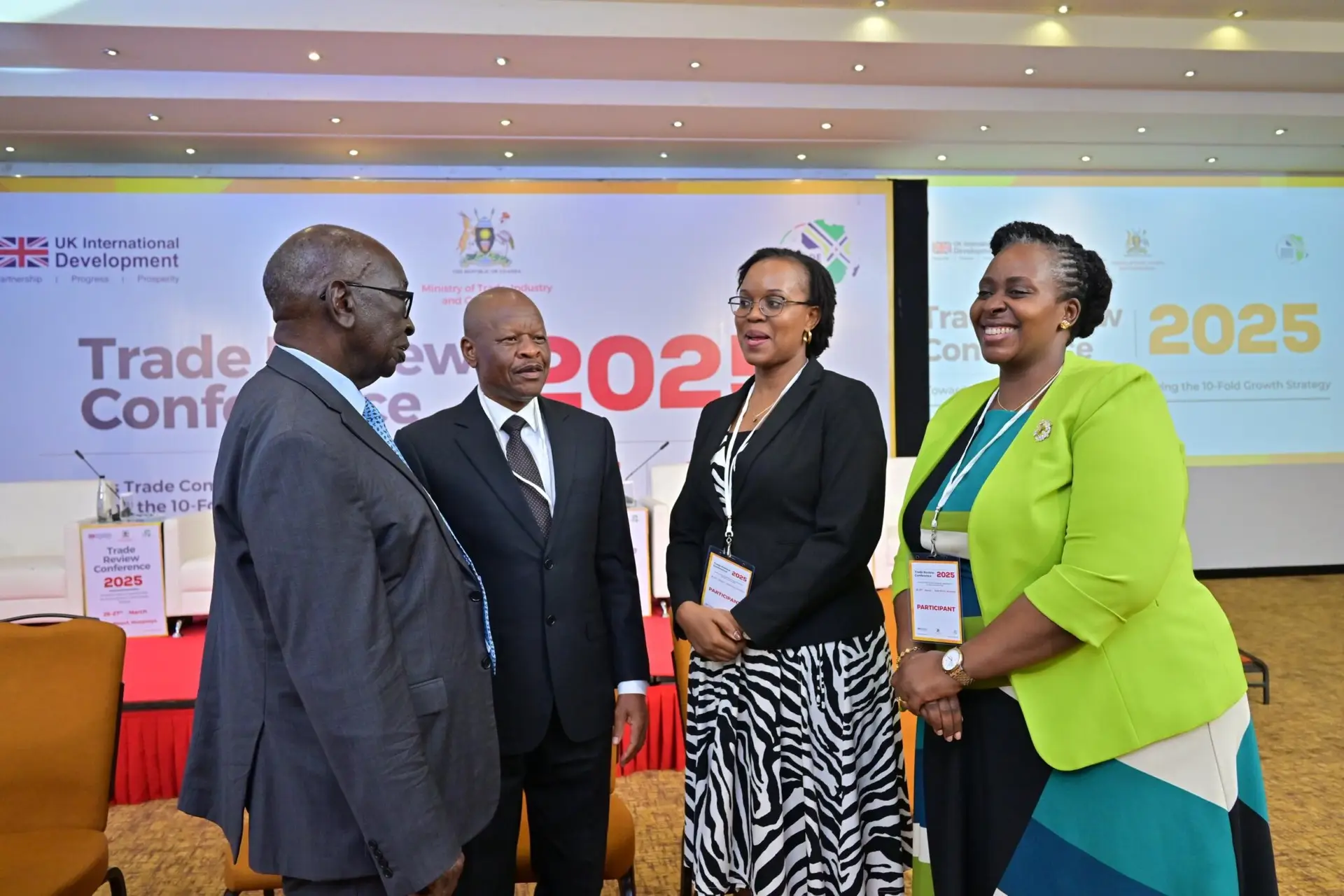Ministers Francis Mwebesa and Wilson Mbadi (left and second from left) with TMA Uganda Country Director Anna Nambooze and Bagonza (second from right and right)
The Ministry of Trade, Industry, and Cooperatives, Uganda, and TradeMark Africa convened 190 participants drawn from government, the private sector, civil society, and international organizations on 26 and 27 March, 2025, to discuss and evaluate the current state of trade in Uganda.
The Uganda Trade Review Conference 2025, themed Leveraging Trade: Towards Uganda’s 10-Fold Growth Strategy, focused on identifying challenges and opportunities in the trade sector. The conference aimed to develop actionable strategies to enhance Uganda’s trade performance, foster economic growth, and promote sustainable development by empowering local businesses to access global markets.
Participants highlighted export growth and diversification beyond traditional commodities like coffee, tea, and tobacco, now including manufactured goods, processed foods, and minerals. This diversification has increased the need for industrial parks and Special Economic Zones (SEZs) to expand production capacity. Additionally, increased trade agreements within the East African Community (EAC), COMESA, and the African Continental Free Trade Area (AfCFTA) have significantly boosted market access. Lynette Bagonza, the Permanent Secretary of the Ministry of Trade, Industry, and Cooperatives, emphasized the importance of shifting from raw exports to processed goods that fetch higher prices in international markets. “Our manufacturing program aims to increase manufactured exports from 15 percent in 2021 to 20 percent by 2029. We must ensure our goods meet global standards and are competitive,” she stated.

Regarding infrastructure development, participants identified the expansion of roads, railways, and border infrastructure as a priority to enhance trade efficiency. These efforts are being complemented by digital trade platforms and logistics hubs to streamline supply chains. Notably, Uganda has digitized trade processes through the Uganda Electronic Single Window (UESW), which has reduced export approval times by 32 percent, saving businesses an estimated US$ 25 million annually.
The conference also called for increased support for Small and Medium Enterprises (SMEs) and cross-border trade, which dominate Uganda’s trade sector and significantly contribute to the country’s GDP through job creation and innovation. The adoption of digital trade and e-commerce platforms was emphasized as a key strategy to expand market accessibility. Additionally, discussants highlighted the importance of financial services such as mobile money and trade financing, which facilitate business transactions.

In terms of value addition and agro-processing, Uganda is focusing on processing raw exports—such as coffee and textiles—to boost job creation and foreign exchange earnings. These efforts align with the Government of Uganda’s policy and trade facilitation initiatives, such as Buy Uganda Build Uganda (BUBU), which promotes local production, as well as simplified customs procedures and reduced tariffs under regional agreements that encourage trade.
As the Uganda Trade Review Conference 2025 concluded, participants reflected on key trade challenges, including trade balance concerns due to higher imports, infrastructure gaps, bureaucratic trade barriers, and currency fluctuations affecting international trade competitiveness. In response, Wilson Mbadi, the State Minister for Trade, announced that the Ministry is moving to deploy trade attachés to Uganda’s foreign missions, a role previously handled by the Ministry of Foreign Affairs.


